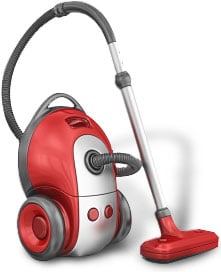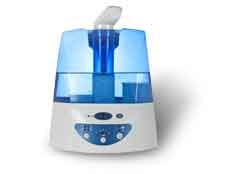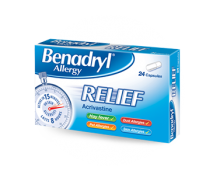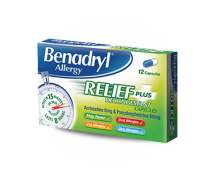Managing your allergy

Your home is the place where you have the greatest degree of control over your environment. Making it accommodating to your allergies will provide significant benefits to you.
Reduce Allergens in Your Home
These practices are not just beneficial for people with indoor allergies. They will improve the air quality at home and provide a healthier environment for people with respiratory problems, asthma or bronchitis. These changes will make significant difference, but if they don’t bring about sufficient relief, it’s time to consider medication.
-
Avoid carpets, rugs, or heavy drapes

All of these things that allow for dust to accumulate. Ideally hardwood or linoleum floors are best for avoiding dust, but if replacing your floor isn’t an option make sure your carpets are low pile.
-
Be smart with your home furnishings
Replacing upholstered furniture can help but if that isn’t possible there are some easy changes you can make. You can update your bedding with anti-allergenic mattresses, sheets, duvets and pillows. You can also cover mattresses with special allergy-friendly bed linen.
-
Be vigilant with your cleaning
Housecleaning, vacuuming, and dusting can all help reduce allergens in your home. Make sure you keep both the floors and your furniture as free from dust as you can. Regularly vacuuming your mattress, carpets and furniture can help. Vacuum with a filter, and when finished change vacuum bags outside.
When cleaning, wear a mask and goggles and use a dampened cloth to tamp down air particles rather than stir them into the air.
If you have a pet and allergies to it and can’t bear to give it away, try doubling up with housecleaning, change your clothes frequently, and keep some rooms off-limits for your pet.Learn more about managing pet allergies
-
Keep on top of your laundry.

Hot wash all bedding to kill dust mites and get rid of their feaces. Air your bed well each day, make it up in the early evening, and dry it with a hot water bottle before sleeping. Even the coolest person sweats when sleeping, and dust mites are attracted to damp. Wash pillows, sheets and children’s toys at 60 degrees C or above.
-
Minimize clutter
This just adds surfaces upon which dust can collect. De-clutter so that dust can’t hide, get rid of cushions and fussy light shades. Keep clothes in wardrobes and dolls, teddies and other soft toys in a toy boxes. Ditching potted plants and bulging rubbish bins (key marshalling areas for mould spores) may also help.
-
Get an air filter

High Efficiency Particulate Air (HEPA) filters help trap allergens that can trigger allergies. Use a HEPA air filter in your home and a vacuum cleaner that has a HEPA filter on it.
-
Keep the windows closed
The importance of bringing fresh air into the home was recognized by Florence Nightingale, the first educated nurse who documented its health benefits. However allergy sufferers must restrict the amount of time windows can be left open. Pollen blowing in through an open window and can increase your allergy misery. Keep windows closed during the times when pollen counts are high.
Cleaning windows is also important, particularly around frames and window sills which can harbour mould and condensation.
-
Finally if you are house-hunting…
… it’s wise to avoid damp locations near rivers or even underground waterways. If you have an allergy to cats or other pets, you may need to include replacing your new home’s flooring in the total cost of the purchase. In fact, your ideal home might be a new-build in the Alps, where dust mites hate the low humidity and temperatures

For more information on how to adopt a low allergy routine continue reading. If you are still suffering you may require medication. Click here to find out more about the treatment options available to you.
Low Allergy Routine
Thinking about your daily routine from the perspective of what could be helping or hindering your battle against allergies can really help you take charge of the situation.
Here are some things to think about for each stage of your day. Of course, routines will have to be adjusted for the time of day, the season of the year, and pollen counts, along the other factors that are customized to you and your specific allergens.
Morning
As you get ready to leave the home, there are things that can make a difference. Since the first time you leave the home will be the first time you will be exposed to allergens, you need to make sure you’re ready. If you’re taking allergy medication take it 30 minutes before you plan to leave your home, BENADRYL® starts to work in 15 minutes.
Gels or other hair products can serve as a magnet for allergens, so when you can, avoid applying them in the morning before you go out.9
Even things you wear can make a difference. For example big sunglasses can keep allergens away from your eyes.
Afternoon
Where possible try and stay indoors, and as in the allergy tips list, avoid open windows as well. While this might not be completely practical there could still be the risks that your allergies will strike. Consider carrying additional allergy medication with you so you’re ready for whatever the day brings.
Evening
If you can find time in your schedule it’s a great idea to take some time to keep your home clean.
This will help avoid the build-up of allergens in your home. In addition try and find time to wash clothes that have been outside collecting pollen.
Finally, it’s a good idea to take a shower before you go to bed. While you’ve been outside during the day you’ve been collecting pollen on your hair and body. Showering before you go to sleep will help wash off the pollen you have collected so you don’t take it to bed with you.
Click here to find out more about the treatment options available to you.

If you are still suffering from allergies you may require medication. Find out more about the allergy treatment options available to you.




